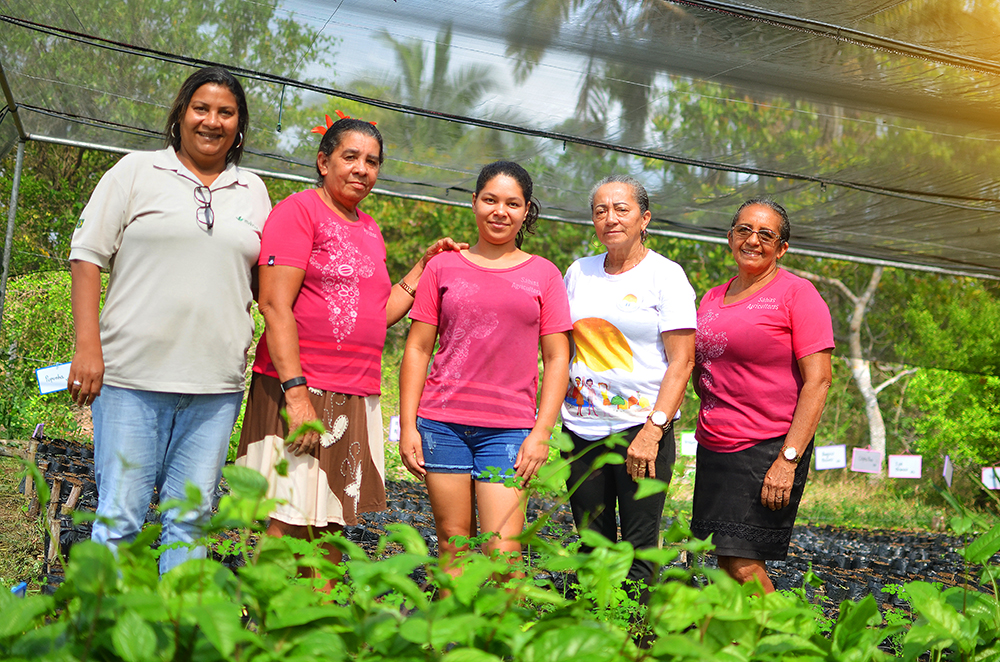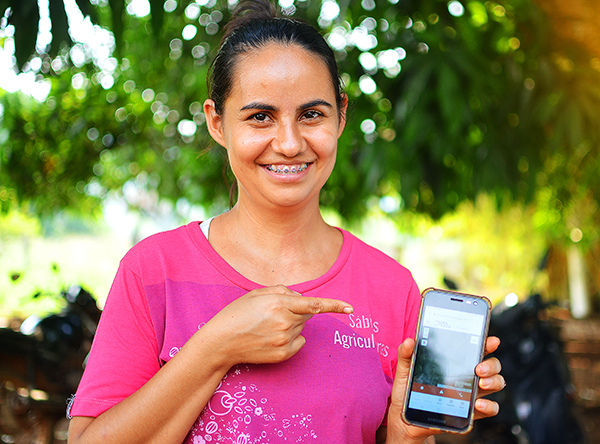By Heidi Buzato, Celma de Oliveira, Giulia Andrich and Natalia Molina.

Photo: Imaflora.
In the São Félix do Xingu municipality in the Brazilian Amazon, there is an association managed by women (AMPPF) that uses family labor to produce fruit pulp and cocoa from their agro-forests, their own backyards, and other neighboring forests.
These female farmers, along with others from four more areas in Brazil where the SERVIR-Amazonia Program operates (Calha Norte, Rio Negro, Solimões, and Tupi Guaporé), have recently reported changes in productivity, climate, and air quality. They say this is due to pesticides being sprayed over pastureland and to changes in water quality caused by mining pollution in rivers, which they believe impact the quality of life and production in the entire region.
And they are not wrong. According to studies by the Climate Observatory released in 2021, their municipality was the largest emitter of greenhouse gases (GHG) per capita in the world, with each resident emitting 225 tons of GHG per year, 22 times more than the Brazilian average. This is mainly due to the acceleration of deforestation by exploitative and illegal activities, especially extensive livestock farming.
In addition, São Félix do Xingu is among the worst Amazonian municipalities in the Social Progress Index, which could be linked to deforestation, which is known to affect agricultural productivity.
Most of the small farmers in this municipality also lack adequate land management tools. Each one expands their crops individually, choosing the most suitable or profitable area according to their preferences, and failing to consider soil and land characteristics, productive capacity, market demand, and other essential factors for adequate planning.
Therefore, the SERVIR-Amazonia Program identified an urgent need for a geospatial tool that could help them monitor land changes and threats to their integrity and to help them plan their production.
That is how TerraOnTrack was born. It is a smartphone app designed to geospatially monitor socio-environmental changes across areas or regions. It was developed by Imaflora for SERVIR-Amazonia, to facilitate access and the visualization of information related to forest degradation, deforestation, and fires. The tool allows people in the field to collect information about changes in the forest and to alert supporting institutions about the changes.
Now in the final stage of its development, Imaflora is conducting a series of training sessions for the use and distribution of the tool, with a potential impact on 180 community organizations in the Amazon. AMPPF has been involved in training 55 female and male members, who together will cover 900 hectares of land.
In August 2022, an in-person training session was held at AMPPF, led by project technician Aline Fransozi. However, even though the women participating were open and ready to learn, there was “a barrier to learning new technologies because many of them have been told their whole lives that they are not capable.”
Consequently, the training has been led by female coaches to facilitate learning because according to Aline, “when a woman is teaching another woman, they are in the same place and the understanding is that it is possible for women to know how to use these tools.” In preparation for using Google Maps and the TerraOnTrack app mapping tools, the training has involved basic steps such as creating an e-mail account, connecting to the internet, contact management, exchanging messages, online meetings, using cameras, and installing applications.
When asked about this process, María Helena Gomes, community leader and association member for about 10 years said, “I found the application very practical when it was presented, and I think it can help us.”

Photo: Imaflora.
AMPPF’s training sessions have proven to be a good example of using a gender-responsive approach in a number of ways; to create a basis for women’s autonomy, for their production and income management, for their personal growth, and the development of their families and their communities.
Celma Gomes de Oliveira, Project Coordinator at Imaflora, who worked on the AMPPF training sessions, added that training on geo-technologies, “can also contribute to demystifying the notion that access to and the use of technological tools is a man’s privilege and domain”.
The training is expected resume in April 2023 and continue throughout year.



